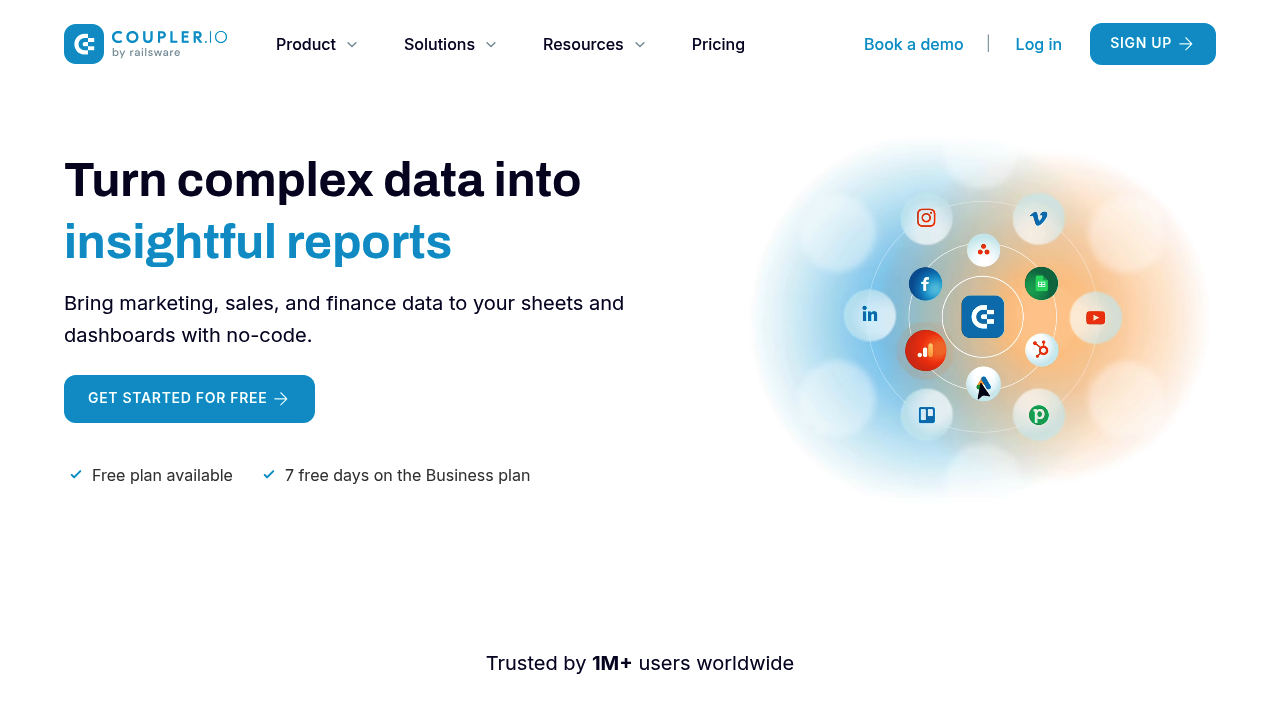
3 Types Of Modern Directories
Discover the three main types of directories you can build, from affiliate to local and user-generated content. Learn how to select the right software to avoid pitfalls.
A Directory website showcasing the best platforms and software tools to build an online directory website. Hey 👋 I'm Andrew. I created this site to help simplify the process of creating niche directories.
Get a complete, customizable Next.js directory template with built-in payments, SEO, and AI content — pay once, launch unlimited directories.

Building a directory website from scratch presents a unique set of challenges. Unlike standard blogs or e-commerce stores, directories require specialized functionality: advanced search and filtering, user submissions, category management, featured listings, and monetization tools. Most website builders aren't designed for this. Custom development is expensive and time-consuming. This is the gap DirStarter fills.
DirStarter is a complete starter template and boilerplate specifically engineered for launching directory websites. Rather than cobbling together plugins or writing thousands of lines of code, you get a production-ready foundation built on modern web technologies. It's designed for developers and technically-minded entrepreneurs who want to skip the foundational work and focus on customization, branding, and growth.
Anyone who has attempted to build a directory site knows the pain points. WordPress with directory plugins becomes bloated and difficult to scale. No-code tools lack the flexibility needed for unique features. Hiring developers to build custom solutions can cost tens of thousands of dollars before you've validated your idea.
DirStarter addresses this by providing a complete, pre-built system that handles all the technical infrastructure a directory needs. You're not starting from zero. You're starting from a codebase that already includes user authentication, submission forms, admin panels, payment processing integration, and responsive design. This dramatically reduces both time-to-launch and development costs.
The product targets a specific audience: developers who want to launch directory businesses faster, agencies building directories for clients, and technical founders who can customize code but don't want to write everything from scratch. If you're comfortable working with modern JavaScript frameworks, DirStarter gives you a significant head start.
DirStarter is built on Next.js, a React framework known for performance and SEO capabilities. This matters for directories because search visibility is often crucial for growth. The template includes server-side rendering and static generation options, ensuring fast page loads and good search engine indexing.
The feature set covers what you'd expect from a professional directory platform. User authentication is handled through NextAuth.js, supporting multiple login methods including email, Google, and other OAuth providers. The database layer uses Prisma ORM with PostgreSQL, providing a robust and scalable data structure that can grow with your business.
The listing submission system includes form builders, image uploads, rich text editing, and custom field options. Category and tag management is built in, allowing for sophisticated organizational structures. Search functionality includes filtering by multiple criteria, location-based search, and sorting options that users expect from modern directories.
What sets DirStarter apart from alternatives is its focus on developer experience and code quality. The codebase follows modern best practices with TypeScript throughout, making it easier to customize without introducing bugs. Component architecture is modular, so you can modify or replace specific features without affecting the entire system.
The monetization infrastructure is another standout element. Stripe integration comes pre-configured, supporting both one-time payments and subscriptions. You can implement featured listings, premium placements, or tiered membership models without additional development work. The admin panel provides clear visibility into revenue metrics and user activity.
DirStarter's versatility shows in the variety of directories it can power. The most common use case is local business directories—think industry-specific alternatives to Yelp or Yellow Pages. A developer recently used DirStarter to launch a directory of sustainable businesses in their region, customizing the category structure and adding eco-certification badges.
Resource directories represent another strong application. Educational course aggregators, tool directories for specific industries, and curated lists of service providers all fit the model. The flexible data structure means you're not locked into a single directory type. One user built a job board by modifying the listing fields to capture job-specific information like salary ranges and application deadlines.
Agency use is particularly notable. Several web development agencies have adopted DirStarter as their go-to solution for client directory projects. The time savings translate directly to better profit margins and faster delivery timelines. When a client wants a custom directory, starting from DirStarter means estimating weeks instead of months for development.
The template also works for niche communities. A directory of indie makers, a curated list of remote-friendly coworking spaces, or a database of vegan restaurants all share similar technical requirements. DirStarter provides the foundation while giving you complete control over branding and specific features.
One concern potential users often raise is whether a template will feel generic or limit their creative vision. DirStarter addresses this through its architecture. Because it's built with modern, well-documented technologies, customization doesn't require reverse-engineering someone else's code. The component structure is logical and the styling uses Tailwind CSS, making visual changes straightforward.
You're not buying a black box. The entire codebase is accessible and modifiable. Want to add a rating system? Integrate a third-party API? Build a custom dashboard for power users? The foundation is there, but you're not constrained by it.
The documentation includes deployment guides for popular platforms like Vercel, detailed explanations of the database schema, and examples of common customizations. This reduces the learning curve and helps you understand not just what the code does, but why it's structured that way.
Directory websites face specific performance challenges. As your listing count grows, search and filtering must remain fast. DirStarter's technical choices directly address this. PostgreSQL provides excellent performance for complex queries. Next.js enables static generation for frequently accessed pages, reducing server load.
Image optimization is handled automatically through Next.js Image components. This matters when you're displaying hundreds of listing thumbnails. The template includes best practices for lazy loading, code splitting, and caching strategies that keep your directory responsive as it scales.
For high-traffic scenarios, the architecture supports horizontal scaling. You can deploy to serverless environments, add CDN caching, and implement database read replicas as needed. While a new directory won't require this immediately, the foundation supports growth without requiring a complete rebuild.
DirStarter operates on a one-time payment model rather than recurring fees. The current pricing structure offers lifetime access to the codebase, updates, and documentation. This represents a different value proposition compared to SaaS platforms that charge monthly fees—you pay once and the code is yours to use for unlimited projects.
The investment should be evaluated against alternatives. Custom development for a directory with comparable features typically runs between $15,000 and $50,000, depending on complexity and developer rates. WordPress solutions might cost less initially but often require ongoing plugin subscriptions, hosting optimizations, and more frequent maintenance.
For agencies, the economics become particularly compelling. A single client project can cover the cost of DirStarter, and subsequent projects benefit from the same foundation without additional licensing fees. Solo founders building their first directory save months of development time, allowing them to reach market faster and begin validating their business model.
Pricing details and current packages are available directly on the DirStarter website, where you can also find information about included features and any applicable usage terms. Check their site for the most current pricing structure and any promotional offers.
Here is the pricing info for DirStarter.
Technical proficiency is the primary requirement. DirStarter isn't a no-code solution. You need comfort with JavaScript, React, and basic database concepts to make effective use of the template. The target user can read code, make modifications, and deploy web applications. If you're hiring developers, they should find the codebase approachable.
Support and community matter when working with a development product. DirStarter includes documentation and examples, and the growing user base provides opportunities for community problem-solving. Updates to the codebase address bug fixes and compatibility with newer versions of underlying technologies.
Some users wonder about the difference between DirStarter and building with a framework like WordPress or using a SaaS directory platform. WordPress offers more plugins and themes but less modern architecture and more maintenance overhead. SaaS platforms provide simplicity but limit customization and add recurring costs. DirStarter occupies the middle ground: more flexible than SaaS, more modern than WordPress, but requiring more technical capability than either.
The ideal DirStarter user has a specific directory vision and the technical skills (or team) to bring it to life. You value code quality and want to avoid technical debt from day one. You're willing to invest time in setup and customization in exchange for complete control and ownership.
For agencies, the ROI calculation is straightforward. For individual founders, consider whether your directory idea benefits from custom features or branding that generic platforms can't provide. If you're testing a concept and might pivot significantly, a no-code tool might make more sense initially. If you're committed to building a serious directory business, DirStarter provides the foundation to scale.
The time savings alone justify serious consideration. Months of development work compressed into days of customization means faster launches, earlier feedback, and quicker path to revenue. In the directory business, speed to market often determines success.
DirStarter delivers on its core promise: a professional, production-ready foundation for building directory websites. The technical choices are sound, the feature set is comprehensive, and the code quality supports long-term maintenance and growth. It's not the right solution for everyone, but for developers and agencies building directories, it eliminates an enormous amount of foundational work.
The product succeeds because it understands its audience. It doesn't try to be a no-code solution for non-technical users. It doesn't hide the complexity of building real software. Instead, it provides excellent starting point for people who know how to build websites but don't want to build everything from scratch every time.
If you're planning a directory project and have the technical capability to customize code, exploring DirStarter should be part of your evaluation process. The time and cost savings compared to alternatives make it a compelling option worth serious consideration.

 Make A Dir
Make A Dir
Make a Directory. Super-easy, no-code system for building directory sites.

 Directify: No-Code Directory Builder
Directify: No-Code Directory Builder
Directify is a super-easy to use no-code directory builder. You can have multiple directory sites for a one-time payment.

 Coupler.io: The Secret Weapon for Building A Directory Site
Coupler.io: The Secret Weapon for Building A Directory Site
A directory builder's perspective on Coupler.io, the automation platform that seamlessly syncs Airtable and Google Sheets data. Discover how it eliminates manual updates and streamlines directory management workflows.

Build a beautiful directory fast with DirectBase. No code, no WordPress. DirectBase is your launchpad for modern, clean, curated directory sites.

 Brilliant Directories
Brilliant Directories
Looking for the best directory website builder? Discover if Brilliant Directories is the right directory software to launch your business directory, membership site, or niche listing platform. Explore features, pricing, benefits, and comparisons to other directory-building tools.

 Directory Easy
Directory Easy
Directory Easy is a streamlined, customizable directory-building platform designed for creators, coaches, and entrepreneurs who want to turn knowledge into recurring revenue. If you’ve ever wished for a simple way to launch a paid resource list, niche guide, or business directory—without needing to code or duct-tape multiple tools together—this is built for you.

Discover the three main types of directories you can build, from affiliate to local and user-generated content. Learn how to select the right software to avoid pitfalls.

Discover a strategic blueprint for creating your own affiliate-powered directory. Learn how to automate, monetize, and scale your directory effectively with this comprehensive guide.

Explore the benefits of using WordPress plugins versus no-code platforms to create an effective niche directory. Discover how to target specific markets and connect businesses with their ideal customers.